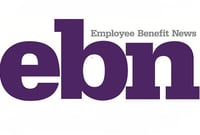Consolidation Corner
-
Blog
- 401k Cash Outs
- 401k Consolidation
- 401k Plan Termination
- America's Mobile Workforce
- Assisted Roll-in
- Auto Enrollment
- Auto Portability
- Auto Portability Simulation
- Automatic Roll-In
- Automatic Rollover
- Automatic Rollovers
- Boston Research Technologies
- CARES act
- Common Mistakes
- DIY Roll-In
- DOL Advisory Opinion
- EBRI
- Employee Benefit News
- ERISA Advisory Council
- Financial Services Roundtable
- Financial Wellness
- How-To
- In-Plan Consolidation
- Leakage
- Lifetime Plan Participation
- Lost Participants
- Managed Portability
- Mandatory Distributions
- MarketWatch
- Missing Participant IRA
- Missing Participants
- National Retirement Savings Cash Out Clock
- Participant Transition Management
- PLANSPONSOR
- Portability Services Network
- PSCA
- Public Policy
- RCH Services
- Retirement Income
- Retirement Plan Portability
- retirement research
- Retirement Savings Consolidation
- Retirement Savings Portability
- Roll-In
- Safe Harbor IRA
- Saver's Match
- Security
- Small Accounts
- Stale Dated Checks
- Synthetic Tenure
- Uncashed Check Services
- Uncashed Distribution Checks
- Video
- Webcast
- What is a Missing Participant?
America's Mobile Workforce
Consolidation Corner Blog
Consolidation Corner is the Retirement Clearinghouse (RCH) blog, and features the latest articles and bylines from our executives, addressing important retirement savings portability topics.
Auto Portability: Meeting the Needs AND Wants of Participants
 When American workers change jobs, the fate of their retirement savings is often left hanging in the balance – especially for those with smaller accounts of less than $7,000. Historically, this segment of retirement participants has faced an uphill battle, where complex transfer processes and the lure of “sudden money” have frequently produced cashouts that undermined their long-term retirement security.
When American workers change jobs, the fate of their retirement savings is often left hanging in the balance – especially for those with smaller accounts of less than $7,000. Historically, this segment of retirement participants has faced an uphill battle, where complex transfer processes and the lure of “sudden money” have frequently produced cashouts that undermined their long-term retirement security.
But today, with the continuing adoption of auto portability via the Portability Services Network, the story is changing.
New Research Shines Light on the Saver’s Match Program
 In August 2025, two important research findings were released that build upon earlier analyses of the Saver’s Match program, scheduled to go live for the 2027 tax year.
In August 2025, two important research findings were released that build upon earlier analyses of the Saver’s Match program, scheduled to go live for the 2027 tax year.
The two new research efforts – one by Morningstar Retirement and the other by Retirement Clearinghouse (RCH) – quantify overall Saver’s Match program benefits, and model the potential size, scale and operations of the program.
Here’s to the Future “Graduates” of Auto Portability
 Auto portability, delivered via the Portability Services Network (PSN), is revolutionizing retirement savings preservation by addressing the critical challenges of cashout leakage and account fragmentation.
Auto portability, delivered via the Portability Services Network (PSN), is revolutionizing retirement savings preservation by addressing the critical challenges of cashout leakage and account fragmentation.
ERISA’s Golden Anniversary has Set the Stage for Helping Future Generations Improve Their Retirement Outcomes—in 2025 & Beyond
 On September 2, 1974, President Gerald Ford signed the Employee Retirement Income Security Act (ERISA) into law. Since that time, ERISA has become the regulatory backbone of the retirement services industry. And on September 12, members of the industry, along with legislators, government regulators, and other private and public sector representatives, came together to celebrate ERISA’s golden anniversary in Washington, D.C. My colleagues and I were honored to be among those in attendance.
On September 2, 1974, President Gerald Ford signed the Employee Retirement Income Security Act (ERISA) into law. Since that time, ERISA has become the regulatory backbone of the retirement services industry. And on September 12, members of the industry, along with legislators, government regulators, and other private and public sector representatives, came together to celebrate ERISA’s golden anniversary in Washington, D.C. My colleagues and I were honored to be among those in attendance.
Two Saver’s Match Resources Now Available
 Retirement Clearinghouse (RCH) has launched two new Saver’s Match resources, which offer plan sponsors, plan providers and participants with consolidated information about the Saver’s Match program, as well as a new saver-focused tool – the Saver’s Match Estimator – which will calculate an estimated matching contribution under the program.
Retirement Clearinghouse (RCH) has launched two new Saver’s Match resources, which offer plan sponsors, plan providers and participants with consolidated information about the Saver’s Match program, as well as a new saver-focused tool – the Saver’s Match Estimator – which will calculate an estimated matching contribution under the program.
The Risky Business of Cashing Out Plan Balances Below $1,000
Taking Stock of the Saver’s Match: The Promise and The Challenges
This Earth Day, We are Reminded to Recycle 401(k) Savings, Instead of Adding to the Landfill of Safe Harbor IRAs
 On April 22, we will celebrate the 54th annual Earth Day, which gives us the opportunity to celebrate our planet’s natural surroundings and contemplate how we can help preserve them. The advent, and ongoing expansion of recycling programs has enabled our society to reduce our waste—and although there is still quite a long way to go, we have evolved significantly from the post-World War II throwaway culture.
On April 22, we will celebrate the 54th annual Earth Day, which gives us the opportunity to celebrate our planet’s natural surroundings and contemplate how we can help preserve them. The advent, and ongoing expansion of recycling programs has enabled our society to reduce our waste—and although there is still quite a long way to go, we have evolved significantly from the post-World War II throwaway culture.
Four Key Findings from the New Auto Portability Simulation
 On the heels of the 11/7/23 announcement by the Portability Services Network that the industry-led consortium has launched its digital auto portability solution powered by Retirement Clearinghouse (RCH), RCH has made available the results from a new version of their Auto Portability Simulation (APS), a discrete event simulation that models the adoption of auto portability within America’s defined contribution system, over a 40-year period.
On the heels of the 11/7/23 announcement by the Portability Services Network that the industry-led consortium has launched its digital auto portability solution powered by Retirement Clearinghouse (RCH), RCH has made available the results from a new version of their Auto Portability Simulation (APS), a discrete event simulation that models the adoption of auto portability within America’s defined contribution system, over a 40-year period.
Auto Portability is Poised to Make an Even Bigger Impact in 2024
 On the last day of 2023, a key provision of the SECURE 2.0 Act—increasing the limit on small 401(k) accounts subject to automatic rollovers into safe-harbor IRAs from $5,000 to $7,000—went into effect.
On the last day of 2023, a key provision of the SECURE 2.0 Act—increasing the limit on small 401(k) accounts subject to automatic rollovers into safe-harbor IRAs from $5,000 to $7,000—went into effect.
-
Blog
- 401k Cash Outs
- 401k Consolidation
- 401k Plan Termination
- America's Mobile Workforce
- Assisted Roll-in
- Auto Enrollment
- Auto Portability
- Auto Portability Simulation
- Automatic Roll-In
- Automatic Rollover
- Automatic Rollovers
- Boston Research Technologies
- CARES act
- Common Mistakes
- DIY Roll-In
- DOL Advisory Opinion
- EBRI
- Employee Benefit News
- ERISA Advisory Council
- Financial Services Roundtable
- Financial Wellness
- How-To
- In-Plan Consolidation
- Leakage
- Lifetime Plan Participation
- Lost Participants
- Managed Portability
- Mandatory Distributions
- MarketWatch
- Missing Participant IRA
- Missing Participants
- National Retirement Savings Cash Out Clock
- Participant Transition Management
- PLANSPONSOR
- Portability Services Network
- PSCA
- Public Policy
- RCH Services
- Retirement Income
- Retirement Plan Portability
- retirement research
- Retirement Savings Consolidation
- Retirement Savings Portability
- Roll-In
- Safe Harbor IRA
- Saver's Match
- Security
- Small Accounts
- Stale Dated Checks
- Synthetic Tenure
- Uncashed Check Services
- Uncashed Distribution Checks
- Video
- Webcast
- What is a Missing Participant?


